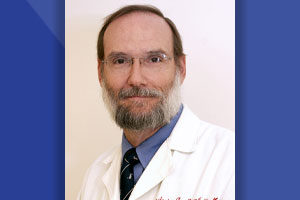It may be years before the scientific community arrives at any conclusions about the relationship between anesthetics and Alzheimer’s disease. But that doesn’t let today’s anesthesiologists off the hook. It’s imperative to understand the latest science before making potentially life-changing decisions about patients.

Roderic G. Eckenhoff, M.D.
Roderic G. Eckenhoff, M.D., Anesthesiologist and Scientist at the University of Pennsylvania, tackles this issue when he delivers Monday’s “FAER-Helrich Research Lecture: Anesthetics, Surgery and Alzheimer’s Disease: Hypotheses Come and Go.” Dr. Eckenhoff has been part of the perioperative neurotoxity debate since it began. He is a researcher, writer and Vice Chair for Research at the Perelman School of Medicine as well as Vice Chair of ASA’s Perioperative Brain Health Initiative.
“As a specialty, anesthesiologists do not evaluate the brain as well as we do the heart, kidneys or liver. Given the many connections between anesthetics, surgery and cognitive impairment, it’s critical to familiarize ourselves with ongoing research and recommendations,” said Dr. Eckenhoff.
1:45 – 2:45 p.m.
Monday
W414CD
During his bench-to-bedside presentation, he will explain how and why anesthetics came to be associated with Alzheimer’s disease, including discussions of animal and human studies, fundamental science, clinical observations and terminology.
The research implicating anesthetics in persistent cognitive disorders is very preliminary. However, there is no doubt that anesthesia, surgery and hospitalization can affect cognition. Perioperative neurocognitive disorder (PND) is the most common complication of surgery in the elderly population.
According to an ASA report, more than 16 million Americans over the age of 60 undergo anesthesia and surgery each year. Studies suggest that up to 40 percent of these patients will develop a form of PND. That adds up to over 6 million patients who seek answers.
“Anesthesiologists in hospitals and private practice care for a growing number of older adults,” said Dr. Eckenhhoff. “They need to understand the changing landscape with regard to preserving brain function.”
Dr. Eckenhoff and a co-author just released a new book titled The Perioperative Neurocognitive Disorders. He has also organized several international workshops on the subject, most recently as part of ASA’s Perioperative Brain Health Initiative.
One consensus reached by the experts is that all patients over age 65 should be informed of the risks of PND after surgery, including confusion, inattention and memory problems.
“If not told to expect this, patients become very anxious and concerned that something irreversible – like a stroke – may have occurred. Or they may believe they are declining into dementia. I have encountered patients who are actually angry at their providers for not telling them about this possibility,” he said.
Given the likelihood of cognitive decline in the days, weeks and months following surgery, it may be time for anesthesiologists and surgeons to consider adding a new warning to their consent forms.
“Most PND seems to be reversible. If told to expect some degree of brain fog after their procedure, patients can defer important decisions and avoid situations requiring intense cognitive skills. This could also reduce the number of return visits to their hospitals or providers,” he said.
Another concept up for discussion is the possibility of pre-, intra- and postoperative assessments of cognitive function. A mini-screening could help physicians identify and address problems at every stage of care.
In the coming months and years, the Perioperative Brain Health Initiative committee will continue to review ongoing research studies and discuss the ramifications for anesthesiologists.
“I look forward to the day when we have more answers than questions,” said Dr. Eckenhoff. “Our goal is to develop clear and evidence-based guidelines for managing all of our patients.”
Return to Archive Index